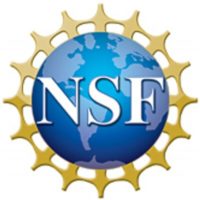
NSF CISE CAREER Proposal Writing Workshop 2022
The National Science Foundation’s Computer and Information Science and Engineering (CISE) will hold a virtual CAREER Proposal Writing Workshop on Zoom April 4-5, 2022. Register here.

The National Science Foundation’s Computer and Information Science and Engineering (CISE) will hold a virtual CAREER Proposal Writing Workshop on Zoom April 4-5, 2022. Register here.

The National Science Foundation is currently seeking nominations for the National Medal of Science (NMS), the highest recognition the nation can bestow on scientists and engineers.

BPCnet.org will be hosting its last working session for this year on Thursday, November 18th, 2021, from 3:00 PM- 5:00 PM ET.
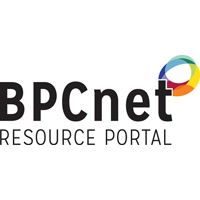
BPCnet.org has a new Statistics and Data Hub resource update that allows users to access publicly available computing-specific data.
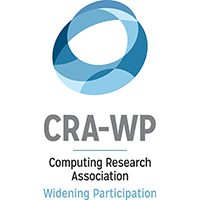
NSF highlighted CRA-WP resources in an article recently published in Open Access Government. The article “Computing, Communication & Information Systems,” authored by Nina Amla with Joydip Kundu and Fernanda Pembleton from NSF CISE shared the mission and major themes supported by the CISE Directorate.

The CRA Center for Evaluating the Research Pipeline (CERP) will support one of the new INCLUDES Alliances as a consultant representing BPCnet.org, a clearinghouse for the community to learn about and engage with ongoing projects to address underrepresentation in Computing. Through this collaboration, CERP will work to expand the BPCnet.org Statistics and Data Hub, an online tool that currently provides computing-related data at the K-12 and postsecondary levels.

Consider registering for NSF’s Directorate for Computer and Information Science and Engineering (CISE) Research Experiences for Undergraduates (REU) program solicitation webinar on August 6th, 2021 starting at 12:00 pm ET.

Recently, CERP was contracted by the National Science Foundation (NSF) Directorate for Computer and Information Science and Engineering (CISE) to evaluate the CISE Research Experiences for Undergraduates (REU) Program, starting spring of 2022. For more information, visit https://cra.org/cra/cerp/cerp-reu-evaluation/

This past spring, the Computing Research Association (CRA) and its Computing Community Consortium (CCC) announced funding for a cohort of Computing Innovation Fellows (CIFellows) for 2021, with strong support from the National Science Foundation (NSF). The program sponsors two-year postdoctoral research positions in computing, as well as career development and cohort building activities, to provide a career-enhancing bridge experience for recent Ph.D. graduates. The program aims to address the continued disruption in hiring practices at academic institutions due to COVID-19.

The National Science Foundation (NSF) Directorate for Computer and Information Science and Engineering (CISE) is hosting a webinar on the Broadening Participation in Computing (BPC) program solicitation (NSF 21-571) on May 4, 2021 starting at 2:00 pm Eastern Time.

In response to the National Science Foundation (NSF) Computer and Information Science and Engineering (CISE) Directorate’s recently announced CSGrad4US Fellowship program, the Computing Research Association’s Education (CRA-E) and Widening Participation (CRA-WP) committees are working to develop a CSGrad4US Mentoring Program for recipients of the CSGrad4US Fellowship.

The National Science Foundation (NSF) Computer and Information Science and Engineering (CISE) Directorate has announced the new CSGrad4US Graduate Fellowship program that aims to increase the number of diverse, domestic graduate students pursuing research and innovation careers in the CISE fields. The new fellowship, which will provide 3-year fellowship opportunities for new Ph.D. students in the computing disciplines, was released in response to the increased demand for people with a Ph.D. in computer science (CS), the continued decrease of domestic students pursuing research and completing a Ph.D., and the overall small number of bachelor’s degree recipients in CS pursuing graduate school.

The National Science Foundation (NSF) Directorate for Education and Human Resources (EHR) is soliciting proposals for projects addressing systemic racism in science, technology, engineering and mathematics (STEM) education and workforce development through research and practice. Those who have been impacted by the inequities caused by system racism should be the primary focus for all proposals. Competitive proposals will be clear with respect to how the work will advance racial equity and address system racism.

PIs with active medium and large CISE Core programs awards are invited to submit supplemental funding requests to engage more members of the CISE research community in significant BPC efforts as part of their project’s BPC plan. Supplemental funding requests should be submitted by the BPC deadline (June 14).

CRA Board Member Timothy M. Pinkston has organized and will moderate the panel, “Valuing Diversity, Equity, and Inclusion in Our Computing Community” from 1:30 to 3 PM (EST) on March 3rd at this year’s co-located HPCA’21, PPoPP’21, CGO’21 and CC’21 conferences (virtual due to COVID-19).

The NSF Directorate for Computer & Information Science & Engineering (CISE) will host a one-day workshop on CAREER Proposal Writing on April 5, 2021.

NSF CISE has announced the new CSGrad4US Graduate Fellowship program that aims to increase the number of diverse, domestic graduate students pursuing research and innovation careers in the CISE fields.

With this Dear Colleague Letter (DCL), NSF draws attention to the opportunity for supplemental funding to help researchers, who are confronted with a short-term increase in dependent care responsibilities, ensure that the research activities supported by an NSF award can continue.

The National Science Foundation (NSF) Computer and Information Science and Engineering (CISE) directorate just announced a new newsletter that will share “periodic updates about CISE and NSF broadly, including up-to-date information about [their] newest programs and activities.” The first newsletter released today highlights three recent major activities that the Computing Research Association (CRA) and its committees were heavily involved in.
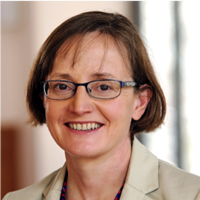
Listen to NSF AD for CISE Margaret Martonosi discuss the importance of Departmental BPC Plans in this new video.

Each year, the National Science Foundation (NSF) recognizes an outstanding young researcher in a field of science or engineering with the Alan T. Waterman Award. Nominations for the 2020 Waterman Award are now being accepted and are due, via https://www.fastlane.nsf.gov/honawards/index.jsp, by October 21, 2019.

National Science Foundation Director France Córdova today named former CRA board member, current CRA-WP co-Chair, and current Princeton Computer Science professor Margaret Martonosi as the next head of the Computer and Information Science and Engineering directorate at NSF. Martonosi will assume the role of Assistant Director, CISE on February 1, 2020.

As we noted an year ago at this time, the National Science Foundation’s (NSF) Graduate Research Fellowship Program (GRFP) is an important but, from our experience, often overlooked funding opportunity for the Computer and Information Science and Engineering (CISE) community. The program recognizes and supports outstanding graduate students in NSF-supported areas who are pursing full-time, research-based master’s and doctoral degrees at accredited U.S. institutions. As the deadline of October 22, 2019, approaches for applicants who fall within CISE fields of study, we want to be sure you all – as members of our community – are aware of this opportunity for your undergraduate seniors and first-year graduate students.

As many of you know, the National Science Foundation (NSF) has a long history of investing in education and workforce development across all areas of science and engineering, including CISE areas.

The NSF International Research Experiences for Students (IRES) program is now accepting applications – this is a program where CISE communities have not leveraged very well in the past, having only 7 of the 158 active IRES awards. The program supports international research and research-related activities for U.S. science and engineering students. If you have (or are considering reaching out to) international research partners who would be willing to host and train undergraduate and graduate students in research, this is a fantastic opportunity to advance science through such collaborations. See list of active IRES awards to explore the rich set of topics that has been supported thus far, and to help identify appropriate IRES collaborations – communicate this information to your students as well.

The NSF Directorate for Computer & Information Science & Engineering (CISE) will host a 1 hour webinar on June 12th, 2019 to provide the CISE community with information and answer questions about the revised Computer and Information Science and Engineering (CISE) Research Initiation Initiative (CRII) solicitation that seeks to help early-career PIs. The solicitation may be found on the NSF website here. A revised FAQ for program will also be posted on the solicitation website shortly. To Join the Webinar, please register before June 11th by visiting https://nsf.gov/events/event_summ.jsp?cntn_id=298656.
The 2019 CISE/Computer Systems Research (CSR) Aspiring Investigators Workshop, will be held at the National Science Foundation on June 20-21, 2019. The goal of the workshop is to familiarize aspiring investigators with the scope of activities supported by CSR, various funding opportunities within the program, and crosscutting programs in which CSR plays a significant role. Aspiring investigators will hear from NSF personnel, as well as other senior investigators on best practices in putting proposals together, developing strong education and outreach programs, maximizing broader impact, and intellectual property and commercialization opportunities. The workshop is open to investigators from institutions eligible to receive NSF funding, who have not received prior regular research grants (excluding CRII and SGER grants) from CSR.

A recent Forbes article written by Maria Klawe, president of Harvey Mudd College and a former CRA board member, addresses “Why We Need Inclusive Teaching In Every Classroom.” In the article, Klawe interviews Colleen Lewis, a computer science professor at Harvey Mudd, about Lewis’ work to develop, incorporate, and disseminate inclusive teaching practices. Lewis researches […]
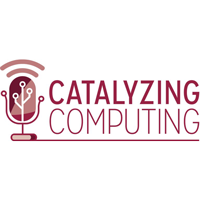
The Computing Community Consortium (CCC)’s recently launched Catalyzing Computing podcast is now included on the NSF’s Science360 Radio stream. Science360 Radio showcases shows from radio and podcast series, and also includes webcasts, events, in-depth interviews, and documentaries from NSF and other contributors. Catalyzing Computing focuses on topics of interest within the computing research community and is hosted by CCC […]

Colleges and universities across the country are experiencing a significant influx of students in their undergraduate computer science (CS) courses. Many of these students are seeking the “traditional,” CS-centric undergraduate degrees that have evolved over decades, along with changes in our field. But many other students are quite different from the students whom we have found in our undergraduate majors. While they are interested in computing, they are more interested in creatively applying sophisticated computational skills and methods to a range of disciplines from biology to linguistics to art. They understand that CS knowledge is critical to helping them succeed in nearly any job, that “every field is becoming an information field.”
